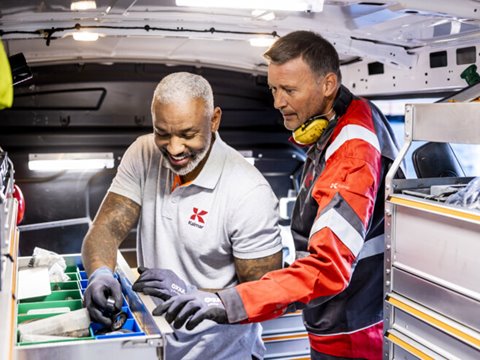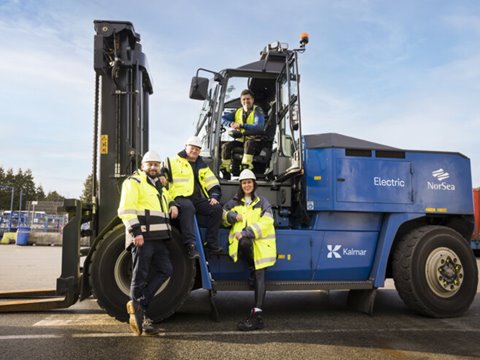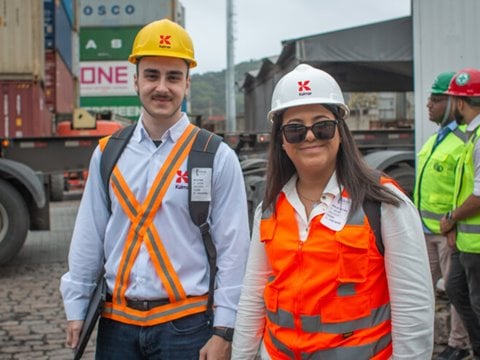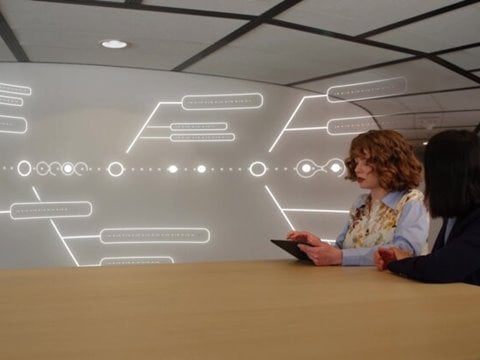
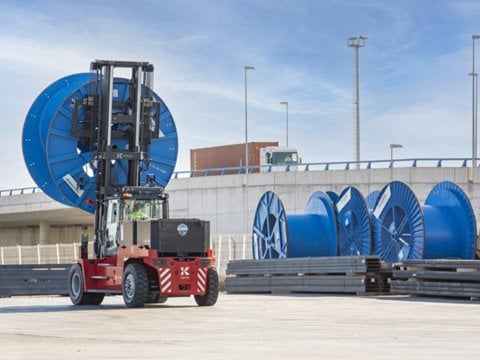
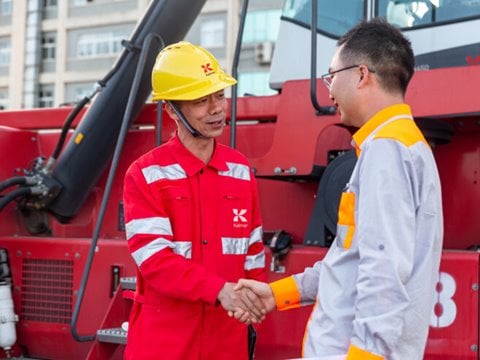



Shares
Automatic Stacking Crane Application
Enabling the highest possible capacity and stacking density
Maximise space efficiency with Automatic Stacking Cranes
Automatic stacking cranes enable the highest possible capacity and stacking density. When using Kalmar AutoShuttle™ as a feeder, apron size can also be minimised, making your terminal as space-efficient as possible. For greenfield terminals, the reduction in footprint size can result in significant capital cost savings, in terms of both land acquisition and terminal realisation. Alternatively, and for brownfield terminals, the space freed up could be used for an expansion of the stacking area that would enable you to increase operational income.
Watch our yard crane automation webinar
Regardless of yard operation and crane type, there are many benefits to be gained with automation
Increased productivity and safety
A combination of automatic stacking cranes (ASCs) and automated shuttle carriers helps you maintain high waterside productivity while ensuring the highest standards of safety and compliance with maritime transport regulations. As well as minimising the potential for human error and improving safety, automation helps you avoid unexpected interruptions that impact productivity and profitability. Kalmar ASC automation and automated shuttle carriers are based on the Kalmar One automation system which provides you with proven and optimized functionalities and well-established processes for your terminal. Kalmar ASC automation can be integrated with third-party cranes.
ASCs are typically used in larger terminals, where throughput and stacking density are important key performance indicators. However, they can also be a cost-effective solution in the long term for medium-sized terminals.
Automated truck handling enables processing of road trucks directly at the ASC stack’s interchange area, eliminating the need for intermediary transport on the landside, decoupling automation clearly from manual operations and thereby improving safety and efficiency while further reducing costs.
Kalmar is a pioneer in stacking automation, with a number of industry firsts, including:
-
The first automated stacking cranes, at the European Container Terminals site in the Netherlands
-
The first three-crane stack concept, for HHLA in Hamburg, Germany
-
The first semi-automated shuttle carriers, at London Gateway, UK
-
The first hybrid terminal layout, at TraPac, Los Angeles, USA
-
The first fully automated OneTerminal solution, at VICT, Melbourne, Australia
Latest from News & Insights
You need to accept targeting cookies before you can view the YouTube content. Those cookies may be used to show you relevant content and adverts. Click the button “Cookie Settings” to manage your preference.






